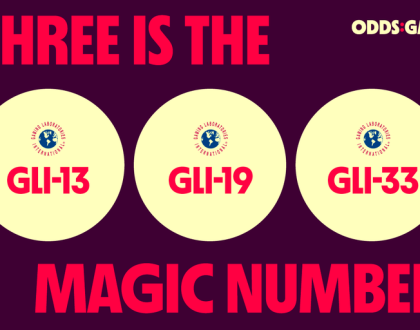SGA Backs Credit Card Ban for Gambling

The Swedish Gambling Authority (SGA), known locally as Spelinspektionen, has formally expressed its support for the proposed ban on credit card use in gambling activities. This prohibition, expected to take effect on April 1, 2025, represents a significant policy shift aimed at enhancing consumer protection and aligning Sweden with other countries that have implemented similar measures.
Background of the Proposal
The Swedish government has been deliberating on this proposal for several months. The intended regulation seeks to prohibit the use of credit cards for all licensed gambling activities within Sweden. This aligns Sweden with other regulated markets such as the United Kingdom, Ireland, Australia, and Norway, where such bans are already in place.
Official Statement from the SGA
In response to government measure FI2024/00442, the SGA’s director general, Camilla Rosenberg, emphasized the regulator’s approval of the proposed ban. The SGA’s official statement confirmed that it supports the comprehensive application of the ban across all forms of gambling requiring a license. The authority also noted its capacity to grant exceptions in specified exceptional cases, providing a degree of flexibility in the regulation’s implementation.
Concerns and Clarifications
While the SGA endorses the proposal, it has identified certain areas of concern and ambiguity. One significant issue pertains to the impact on public benefit lotteries. These lotteries often sell tickets through digital channels, necessitating a mechanism to ensure that purchases are not made using credit cards or credit provided by third parties.
Additionally, the SGA raised questions about the proposal’s potential impact on the use of account credits for gambling stakes. By definition, credits linked to a bank account are considered account credits. The SGA highlighted that this could be interpreted as requiring license holders and gambling agents to ensure that credit limits are not utilized when payments are made with debit cards.
Regulatory Interpretation
The SGA clarified that, based on its interpretation, the proposal does not impose a duty on license holders and gambling agents to investigate whether a debit card has a credit limit for each transaction. This interpretation aims to alleviate concerns about the administrative burden and practicality of implementing the ban.
Alignment with International Standards
Banning the use of credit cards for gambling aligns Sweden with international practices observed in other regulated markets. Countries such as the United Kingdom, Ireland, Australia, and Norway have already implemented similar bans, citing consumer protection and responsible gambling as primary motivations.
Potential Impact on the Market
The Swedish trade association BOS has expressed concerns that the credit card ban could significantly impact the legal gambling market. They argue that it might drive players towards unregulated markets, undermining the goal of the regulation. However, the SGA acknowledged that there is currently no definitive evidence on how this measure will affect digital ticket sales and the broader market.
The Role of Public Benefit Lotteries
Public benefit lotteries are a crucial aspect of Sweden’s gambling landscape. These lotteries fund various social causes and projects, ranging from health initiatives to educational programs. The SGA’s concern about the impact of the credit card ban on these lotteries stems from their reliance on digital sales channels. Ensuring that purchases are not made using credit cards or third-party credit is essential to maintain the integrity and legality of these transactions.
Impact on Online Gambling
Online gambling has grown significantly in Sweden over the past decade. The rise of digital platforms has made gambling more accessible, but it has also raised concerns about consumer protection and responsible gambling. The proposed credit card ban is seen as a measure to curb problem gambling by preventing individuals from using borrowed money to place bets. This move is expected to foster a safer gambling environment, although its full impact on the online gambling sector remains to be seen.
International Comparisons
The SGA’s endorsement of the credit card ban places Sweden among a group of countries that have taken similar steps to regulate gambling. The United Kingdom, for instance, implemented a credit card ban for gambling in April 2020. The UK Gambling Commission cited the need to protect vulnerable individuals from gambling-related harm as a key reason for the ban. Similarly, Ireland and Norway have enacted similar measures, reflecting a growing international consensus on the issue.
Consumer Protection and Responsible Gambling
One of the primary motivations behind the credit card ban is the enhancement of consumer protection. Gambling with credit cards can lead to significant financial harm, especially for vulnerable individuals. By prohibiting the use of credit cards, the SGA aims to promote responsible gambling practices and prevent problem gambling. This approach aligns with broader efforts to create a safer gambling environment and reduce the risk of financial distress among gamblers.
Industry Reactions
The proposed ban has elicited mixed reactions from industry stakeholders. While some operators understand the rationale behind the regulation, others are concerned about its potential impact on their business. The Swedish trade association BOS has been particularly vocal, arguing that the ban could drive players towards unregulated markets. This, they claim, could undermine the legal market and reduce tax revenues from licensed operators. The SGA, however, remains committed to the ban, emphasizing the importance of consumer protection over potential economic concerns.
Future Implications
The implementation of the credit card ban in April 2025 will mark a significant shift in Sweden’s gambling regulations. It will set a precedent for future regulatory measures aimed at promoting responsible gambling and protecting consumers. The SGA’s ability to grant exceptions in specific cases will also be closely monitored, as it adds a layer of flexibility to the otherwise strict regulation. How the market adapts to these changes and the overall impact on gambling behavior in Sweden will be key areas of interest in the coming years.
Conclusion
The SGA’s support for the credit card ban signifies a strong commitment to consumer protection and responsible gambling. By aligning with international standards and addressing potential ambiguities in the proposal, the SGA aims to ensure a smooth transition to the new regulatory framework. The ban, set to be enforced from April 1, 2025, marks a pivotal step in Sweden’s ongoing efforts to regulate its gambling industry effectively. As the country moves forward with this significant policy change, the focus will remain on fostering a safer gambling environment and protecting vulnerable consumers from the risks associated with gambling on credit.
Frequently Asked Questions
What is the Swedish Gambling Authority’s stance on the proposed credit card ban for gambling?
The Swedish Gambling Authority (SGA) supports the proposed ban on credit card use for all licensed gambling activities.
When is the credit card ban expected to take effect in Sweden?
The credit card ban is expected to take effect on April 1, 2025.
Why is the SGA supporting the credit card ban?
The SGA supports the ban as a measure to enhance consumer protection and promote responsible gambling.
Which other countries have implemented similar bans on gambling with credit cards?
Countries such as the United Kingdom, Ireland, Australia, and Norway have already implemented similar bans.
Will there be any exceptions to the credit card ban for gambling in Sweden?
Yes, the SGA indicated that it could grant exceptions in specified exceptional cases.
How might the ban impact public benefit lotteries in Sweden?
Public benefit lotteries that sell tickets through digital channels will need to ensure that purchases are not made using credit cards or third-party credit.
What concerns did the SGA raise about the proposal?
The SGA raised concerns about the impact on public lotteries and the ambiguity regarding the use of account credits for gambling stakes.
Does the proposal require license holders to check if a debit card has a credit limit?
No, the SGA clarified that the proposal does not impose an investigation duty on license holders and gambling agents to check credit limits for debit card transactions.
What potential impact could the ban have on the legal gambling market in Sweden?
The Swedish trade association BOS expressed concerns that the ban might drive players towards unregulated markets, though there is no definitive evidence of this impact.
How does the credit card ban align with international gambling standards?
The ban aligns Sweden with international practices observed in regulated markets, such as the UK, Ireland, Australia, and Norway, focusing on consumer protection and responsible gambling.
Ash
I like to keep it short. I am a writer who also knows how to rhyme his lines. I can write articles, edit them and also carve out some poetic lines from my mind. Education B.A. - English, Delhi University, India, Graduated 2017.
Recommended Posts

EveryMatrix & beBettor Ensure Safer UK Gambling
July 26, 2024

Oddsgate Secures GLI-33 Certification
July 26, 2024

£122.5M Pledge by BGC Targets Gambling Issues
July 24, 2024




